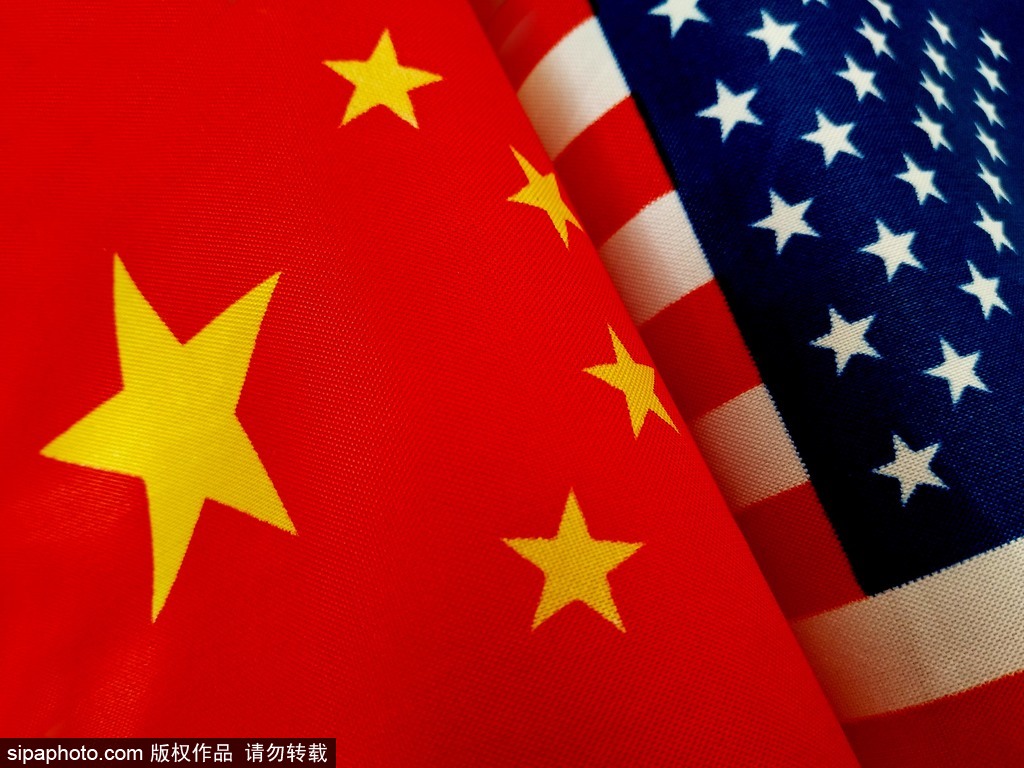Why does Biden's China policy need revolutionary changes?
chinadaily.com.cn | Updated: 2022-02-04 17:40

After 15 years of negotiations, China took its rightful place at the World Trade Organization (WTO) on Dec 11, 2001. Beijing's membership and integration into the global economy – a "pivotal event" in the multilateral trading system history – underpinned China's economic growth, brought positive impact on world prosperity and "marked a significant step" for the group to become a truly world organization.
Even before becoming a member of the WTO, China was making significant strides. Applauding Beijing's radical economic transformation, market reforms that spurred two decades of unprecedented growth and poverty mitigation measures as well as declaring isolation would be "unworkable, counterproductive and potentially dangerous", then-US President Bill Clinton in 1997 called for engagement with Beijing. "Our objective is not containment and conflict; it is cooperation."
As a result, he "strongly" backed Beijing's "rightful" admission and place into WTO and global economy to gain improved access for American goods and services in a "great nation," he predicted to ripen into the second-largest trader in 2020.
The strategy worked. Between 2001 and 2006, the US merchandise exports to China rose 187 percent with services trade surplus of $2.6 billion in 2005, according to the US Treasury Department's press release titled "Benefits of Trade with China." The positive impetus amped up the country's economy as the US exports to the rest of the world also grew 38 percent.
In the face of the worst of diplomatic and political rows, the US Census Bureau data suggests Washington's goods exports to Beijing, for the first time ever, would easily beat the $150 billion barrier in 2021. An about eight-fold increase in US exports to China since 2001 emphasizes Washington has an insatiable desire to leap at the opportunity provided by the world' second largest economy.
Per the Office of the US Trade Representative, America's services trade surplus as of 2020 totaled about $25 billion. The US goods and services trade with China supported an estimated 758,000 jobs in 2019 alongside $59 billion Chinese investments in 2019 supporting another 156,000 American jobs. A plurality of US companies enjoys a strong presence in China and they don't intend to leave the biggest consumer market.
Beijing in 2013 replaced Washington as the world's largest trading nation, beating Clinton's prediction to become second largest trader by 2020. In 2014, China overtook the US as the largest economy in terms of purchasing power parity. Unfortunately, the Obama administration's "pivot to Asia" was guided by a single strategic objective: contain the rise of China by controlling the costs of America's hegemony and restoring the US international reputation.
For decades, president after president drove the world into turbulence to assert the US dominance, leaving their successors to start from scratch, spend much of their tenures in reviving the country's global trustworthiness and wipe the slate of the US sins such as practiced in Afghanistan and Iraq.
Nevertheless, credibility, the core element of the US big-ticket militaristic policy, within allies has been hit hard by America's chaotic withdrawal from Kabul and would be even more costly and dangerous if it goes for a war with China. The US is devoid of the mettle to accept China as a major power. It should come out from the state of denial, retreat to the one-China policy and undertake steps to avoid confrontation and decoupling of the two biggest economies.
Washington feels its dominant leadership model is at stake by China's advent as a key economic and peace player and the global embrace of Chinese cooperative policy. The Biden administration is hedging its bets on bolstering alliances in a bid to cut Beijing's economy with the rest of the world while avidly seeking to set the "common-sense guardrails" so that "(extreme) competition does not veer into conflict."
Yet by picking winners in technologies and industries, Biden is weakening the open multilateral trading system and international rule of law. His protectionist "Buy American" plan, an initiative considered a blockade of free trade by the US partners in 2017 and shoving inflation upward with tariffs in place, also signals to penalize US allies whom he has been courting to compete with China and could encourage them to retaliate.
Biden, like Trump, lacks a clear objective and he should set an explicit goal in his China policy, so is the argument from the proponents of medium-term tensions to achieve long-term equilibrium with China. But the world – realizing the era when the West ruled and Asia listened has gone and the idea to splinter the world through ideological battles in two blocs can't resolve the pressing global challenges – will push back against this risky strategy that advocates to abandon engagement and pursue competition with China.
The US president couldn't make America more credible and respected just by copying his predecessors. Earlier pandemic and now the supply chain disruptions have upturned the international economic and trading system, underscoring the critical importance of collaboration between the two deeply intertwined economies, China and the US.
Revolutionizing Washington's China policy on the principles of cooperation, nonaggression and economic integration could be a workable solution for Biden to counter the daunting economic, health and climate challenges America and the world is gripped with. Only such an approach of mutual coexistence from Biden can ameliorate the US image and support its commitment for a stable and prosperous world.
Azhar Azam works in a private organization as market & business analyst and writes on geopolitical issues and regional conflicts.
The opinions expressed here are those of the writer and do not necessarily represent the views of China Daily and China Daily website.
If you have a specific expertise, or would like to share your thought about our stories, then send us your writings at opinion@chinadaily.com.cn, and comment@chinadaily.com.cn.
























